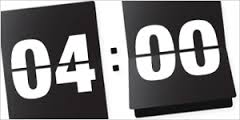In my February 5th post I wrote about an idea M. Allen Cunningham shared in the recent Poets and Writers inspiration issue. In his essay he explores turning “creative limitation” into a “positive force” and argues that “imposed limitation” stimulates creativity.
My day job recently forced me to put Cunningham’s thesis to the test.
This season, I’ve been crazy busy with my not-writing work – I’m a freelance theatrical stagehand. Most recently, an old friend who runs the scene shop down at Texas State called me for a gig, filling the last beautifully empty week in my calendar until the end of the season. I kind of wanted to kill him even as I said yes. It makes me feel a bit like an ass to complain about getting paying work. But feeling like an ass has never stopped me from blundering on before, so here goes. I despaired when I lost that week of free time. I didn’t realize how much I had been fetishizing it and draping it in (probably unrealistic) expectations in regard to my neglected WIP.
Then it was just gone. Once more, my ‘writing time’ had been superseded by my annoying need for food and shelter.
I’m proud to report that I eventually stopped feeling sorry for myself. Even more surprisingly, I rose to the challenge and set my alarm for four a.m. More surprising still, I actually managed to drag myself out of bed when it went off the next morning.
I wrote for two solid hours before “starting” my day.
I know, I know. There’s nothing new in a writer getting up insanely early to work. But it is new to me. And, even though it puts a deep ache in my lazy bone to say it, I have seen the light. Okay, not exactly the light; it’s still dark in those quiet hours. But I am now officially a believer in the get-up-before-the-rest-of-the-world-and-write strategy.
When I have to be.
Luckily, that only turns out to be about half the time. My paying work usually starts in the afternoon or evening, leaving me plenty of time for both sleep and writing. So it’s a comfortable commitment, one that fits easily into my long standing dedication to not working too hard if I don’t have to. But it is a new commitment that I am (so far mostly) keeping.
And I wrote some strong words in those predawn sessions. I also kept up on all three of my blog commitments. I couldn’t help feeling a little proud at the end of the week: I had been tested and not found wanting.
True confession time:
Getting up that early sucked. And I only did it three out of the five days I worked my unusual eight-to-five schedule: on one morning I snoozed until 4:30, and on Thursday I didn’t get up and write before work at all. But I’m still calling it a good week, a personal victory on a small scale. A definite step in the right direction. And I can’t stress how happy I continue to be with the product of my early mornings.
If you’ve got a day job and you’re considering a predawn writing practice, I say go for it. You’ll be tired in the evenings at first, but it gets easier. If nothing else, when you tell people about it they’ll think you’re hardcore.
Next up for me is Ballet Austin’s New American Talent Contest at the Long Center. Their work calls start at 8:00 a.m. Mine will start at four.












